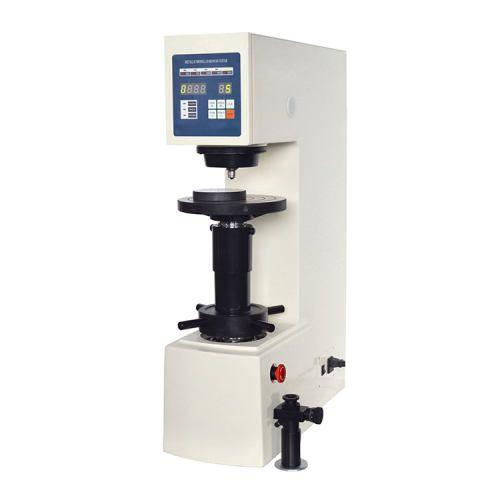Selecting the right Brinell Hardness Tester hinges on several factors that align with your specific testing requirements. Here's a breakdown of key considerations to guide your choice:
Material Properties
l Type of Material: The materials you plan to test are crucial. Brinell testers excel with various metals, castings, and forgings. For very hard materials or those requiring high precision, other methods like Vickers or Knoop might be better suited.
l Hardness Range: Consider the expected hardness range of your test materials. Choose a tester with a load capacity that accommodates that range. Brinell testers typically cater to a broad hardness spectrum.
Sample Characteristics
l Size and Shape: The size and shape of your test samples can influence your tester selection. Portable testers might be suitable for smaller samples, while larger, stationary testers can accommodate bigger workpieces.
l Surface Condition: If the test surface has critical tolerances or requires minimal marking, the large indentation size of the Brinell test might be a concern. Consider alternative methods for such applications.
Desired Level of Precision
l Accuracy Needs: Brinell testing offers good accuracy, but for situations demanding the highest precision, especially for very hard or thin materials, Vickers or Knoop testers might be preferable due to their smaller indentations.
l Repeatability: Evaluate the level of repeatability (consistency of results) required for your testing. Brinell testers generally provide good repeatability, but other methods might offer slightly better results in specific scenarios.
Application and Budget
l Portability vs. Lab Use: Do you need a portable tester for on-site measurements, or will the testing be conducted in a controlled laboratory setting? Portable testers offer flexibility but might have limitations in terms of load capacity or precision compared to larger, stationary lab models.
l Budget Constraints: Brinell testers come in a range of prices depending on features, capabilities, and load capacity. Determine your budget and choose a tester that offers the necessary functionalities within your price range.
By carefully considering these factors, you can make an informed decision when choosing a Brinell Hardness Tester that aligns perfectly with your testing applications and requirements. You might also want to know How to Maintain a Brinell Hardness Tester for Optimal Performance?

